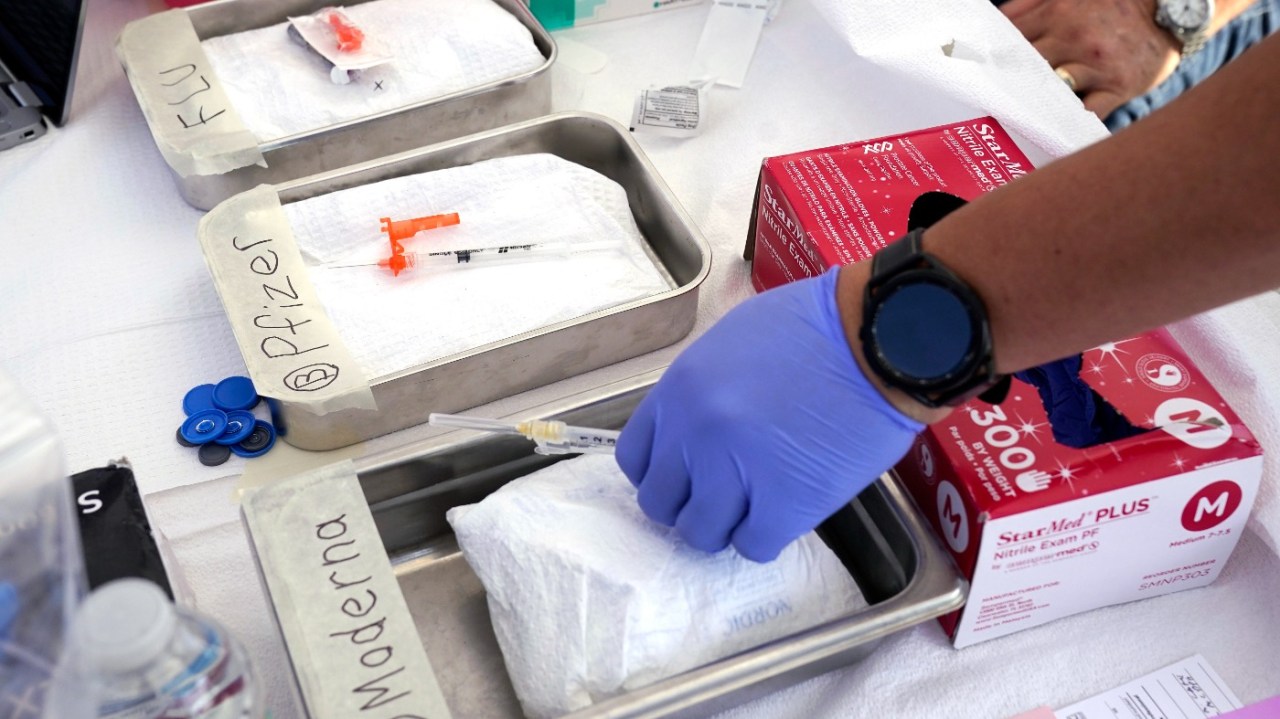Belief in misinformation about key health issues persists among a good chunk of adults, with false claims about COVID-19, vaccines and reproductive health garnering a substantial amount of support, a new poll from KFF has found.
Whether or not they believed the claims, nearly all participants in the survey were aware of the misinformation with 96 percent saying they had heard at least one of the 10 claims presented to them. The most widespread misinformation claims had to do with COVID-19 and vaccines.
The new polling data found that a third of adults believed the COVID-19 vaccines “caused thousands of sudden deaths in otherwise healthy people,” with 10 percent believing that claim to be “definitely true” and 23 percent saying it was “probably true.” Another 34 percent said it was “probably false” and 31 percent said that claim was “definitely false.”
Nearly a third of people also said they believed the parasitic deworming medication ivermectin was an “effective treatment for COVID-19.” Among the naysayers, 44 percent said that claim was “probably false” and 22 percent said it was “definitely false.”
Health experts and clinicians have repeated stressed that there is no evidence that ivermectin has any efficacy in treating or preventing COVID-19 infections, and the Food and Drug Administration has never authorized the drug for use in treating the coronavirus.
In the same poll, roughly a quarter of people said they believed vaccinations against measles, mumps and rubella caused autism in children and that COVID-19 vaccines cause infertility. No evidence has so far been found to indicate that immunization against SARS-CoV-2 affects male or female fertility.
The claims that vaccines cause autism have long been refuted. Several studies, including one in Sweden published in 2020 that followed children exposed to flu vaccinations for several years, have found no link between vaccinations and autism.
The British physician Andrew Wakefield who originated the claim has since been barred from practicing medicine in the U.K. and the 1998 study he conducted that linked autism to vaccinations has since been deemed fraudulent.
Regarding reproductive health, about a third of survey participants said they believed sex education would lead to teens being more sexually active and also that birth control the pill or IUDs make it harder for women to get pregnant after they stop using those methods.
Larger shares of participants believed in misinformation having to do with gun violence when compared to the other issues, with 60 percent saying they believed “armed school police guards have been proven to prevent school shootings.”
A 2021 analysis of 133 school shootings from 1980 to 2019 found that armed school police officers — who were present in nearly a quarter of school shootings included in the study — were not associated with a significant reduction in gun injuries.
Another 42 percent said they believed people who have firearms in their homes are less likely to be killed by a gun than people without guns at home. In fact, the opposite has been observed, with a 2022 analysis of California adults from 2004 to 2016 finding that overall homicide rates were more than two times higher among people who lived with gun owners than those who didn’t.[the original study didn’t control for income, which is fucking lib]
While these results indicate a sizeable minority of adults believe in disproven claims about health, KFF noted that the rate of people who believe them to be “definitely true” was small overall. The majority people fell in what the organization referred to as the “malleable middle,” who were unsure about most of the claims presented to them.
KFF found that certain groups were more susceptible to misinformation than others, including those with lower levels of educational attainment, those who identify as Republican as well as Black and Hispanic adults.
The findings came from the KFF Health Misinformation Tracking Poll Pilot that was conducted from May 23 to June 12. Pollsters included 2,007 adults in the survey and the results have a margin of error of plus or minus three percentage points.



It’s difficult to even get through to people about vaccine information. Just the other day someone I work with was going off about how they “proved ivermectin actually does work for COVID” and it’s like, why bother engaging at all? I’m not going to change his mind, it’s rotted.
I feel like we’re in a post discourse society. People don’t argue shit anymore. I feel like, in 2015, people would be writing pages of FB comments going off on this shit.
deleted by creator
And no one passes the vibe check
yeah at a certain point all you can do is say “show me the study” and they’ll just say “uh look it up it’s true” and you can be like “no it’s not, i’ve seen countless people claim that and they never have evidence that’s rigorous and indicates what they’re claiming” and they’ll just tell you to do your own research again.
or more likely they’ll be like “my cousin got the vaccine and then they died” and you can say that they’re wrong and that didn’t happen but you don’t have access to the medical records so as far as they’re concerned you know just as much as they do.
And even when you do provide evidence, they will wave it away with a “those scientists are part of the cabal” or “that was paid for by big pharma” and ignore the data entirely.
I remember when the ivermectin shit was going around, it was legitimately too foolish to warrant a response. I think I ended up just telling them that they’re taking cow/horse meds and sending them Doja cats I’m a cow I go moo song lol.